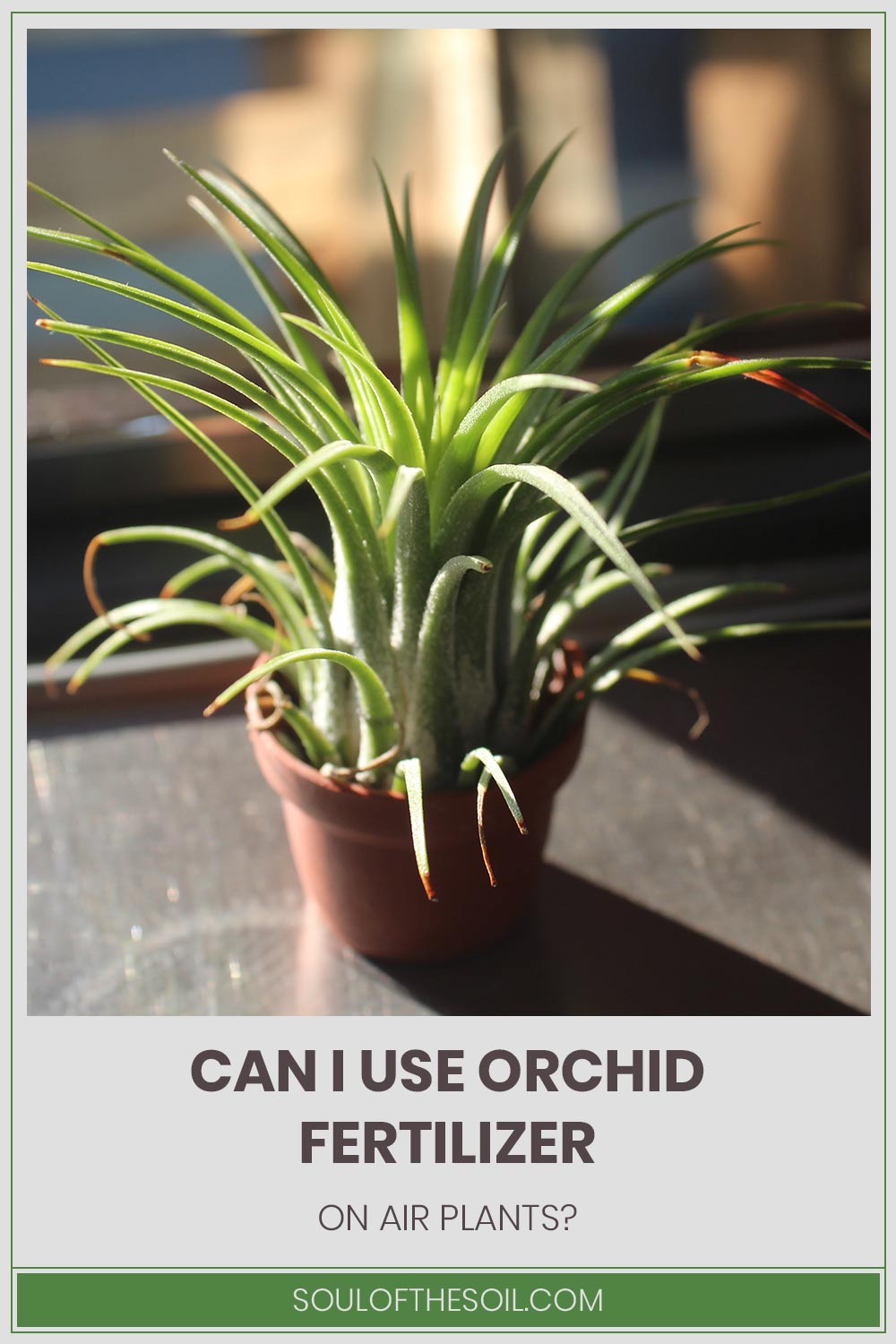Can I Use Orchid Fertilizer On Air Plants?
We may earn commissions for purchases made through links on our site. Learn more on our about us page.
Taking care of air plants is different from caring for plants fertilized in soil. If you have never owned an air plant before, you might want to do some research before you take on a new plant. Air plants require a specific kind of fertilizer.
You must ensure you are using low-nitrogen fertilizer on your air plants. Orchid fertilizer is a good option for fertilizing air plants. You can use orchid fertilizer with no copper, as copper can kill air plants.
If you are already an owner of orchids and you have orchid fertilizer handy, you are in luck.

How Do You Do it?
Fertilizing air plants requires a different process from fertilizing regular potted plants. Using fertilizer on your air plants depends on the instructions provided with the fertilizer. Each brand of fertilizer might require different measurements to be used properly.
Pay attention to the label on the brand of fertilizer you have chosen for your air plants. You will need to mix a minimal amount of orchid fertilizer with water and spray your plants with the mixture.
This is only to be done once or twice a month. You will need to ensure that you are not using orchid fertilizer with copper, as copper can kill all air plants.
Which Orchid Fertilizer Should You Use?
There are many different brands of orchid fertilizer, and it can be challenging to know which kind to use if you don’t already have some on hand. Your air plants will be fine if you use orchid fertilizer with no copper and low nitrogen.
If you are hoping to avoid mixing the fertilizer with water on your own, a great brand to use is Miracle-Gro. Miracle-Gro Ready to Use Orchid Plant Food Mix is already mixed and ready to spray on your air plants.
Other brands might require you to combine the fertilizer with water, but as long as you avoid copper and choose one low in nitrogen, your air plants will do well.
How Much of it Can You Use?
Your air plants do not need much fertilizer to survive. Make sure you are paying attention to the instructions on your fertilizer to ensure you do not over-fertilize your air plants. You only need to spray them with a misting of the orchid fertilizer once or twice a month at most.
You do not want to over-fertilize your air plants. If you fertilize your air plants too frequently, you could kill your air plants. Make sure you are not over-fertilizing your air plants.
Orchid Fertilizers You Shouldn’t Use
Any orchid fertilizer high in nitrogen and copper levels should not be used to fertilize your air plants. House plant fertilizers often contain these elements that will kill your air plants.
Most orchid fertilizers do not contain copper and are low in nitrogen, making them safe to use on your air plants. If you already have orchid fertilizer, it is likely it is safe to use on your air plants.
Always check your product’s label to ensure that the orchid fertilizer you are using does not contain these harmful elements.
How Often Should You do it?
Air plants do not need to be fertilized often, making this a relatively low-maintenance chore to maintain your plants.
However, you should not fertilize your air plants too frequently or risk killing them. Once you have found a fertilizer that is low in nitrogen and free of copper, you can set the mixture aside in a spray bottle to be used no more than once or twice a month.
Final Thoughts on Can You Use Orchid Fertilizer On Air Plants
If you own orchids, you might have the fertilizer you need for your air plants. First, check the label of your orchid fertilizer to ensure that it is low in nitrogen and contains no copper.
Once you have found an orchid fertilizer that is safe to use on your air plants, you can schedule a time to fertilize your plants with a light misting once or twice a month.
Fertilizing your air plants should be a low-maintenance task, as long as you are using a fertilizer that is safe for your air plants and you don’t do it too frequently.



Leave a Reply
You must be logged in to post a comment.